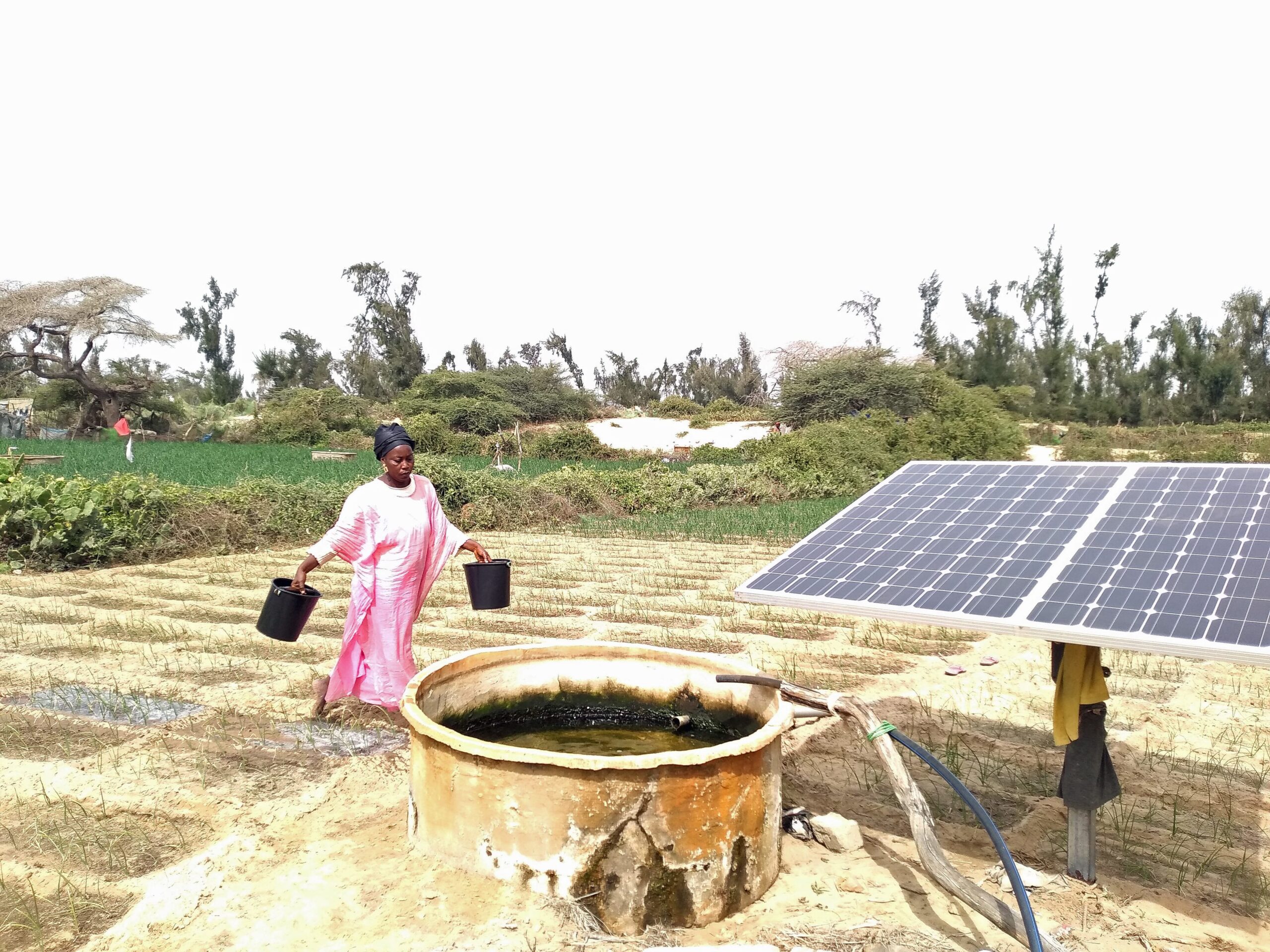The last six months have often seemed like a rollercoaster for Aïssata Ba as she tries to keep her market garden business afloat.
As soon as the Senegalese COVID-19 restrictions were lifted in June 2020, Aïssata rolled up her sleeves and brought her land back to life by using a new blend of poultry dung, goat manure and herbs as fertiliser (a recipe learned from Energy 4 Impact’s agronomist). The results were impressive: she harvested 33 crates of excellent quality tomatoes. Normally, she would have sold such produce for about $400, but she only ended up making $210 due to price volatility linked to market uncertainty and the reduced purchasing power of her customers.
Aïssata subsequently fell behind on repayments for her solar irrigation system. As she accumulated a $328 debt with her creditors, the knock-on effect upon her household’s budget created a lot of anxiety. Aïssata heaved a sigh of relief at the end of December when she found out that she was one of the beneficiaries of the ENERGIA-Hivos COVID-19 Solidarity Fund. This fund is designed to support entrepreneurs who were performing well before the pandemic, but are now struggling due to the ongoing crisis.
The one-off $328 grant from the fund will not only abolish her debt, it will enable Aïssata to relaunch her business by investing in quality seeds as well as materials to make organic pesticides and fertilizers. She will also be able to retain the employee who helps with hard manual work. The COVID-19 Solidarity Fund will bring a further benefit: she will be endowed with a tablet to enable digital innovation. This tablet will allow Aïssata to perform a number of tasks that will improve her business: record information, undertake research to make more informed decisions, transfer and receive funds online, participate in remote training and guidance, check the latest news on coronavirus-related restrictions and market her products online.
Aïssata has just started a new two-phase onion season in her 0.15 hectare plot of land in Lompoul Sur Mer. However, dark clouds are once again gathering on the horizon. The number of coronavirus cases is rising and the government of Senegal has instituted a curfew. Aïssata’s optimism about a good cropping season is therefore tempered by fears that these restrictions will lead to further challenges to her business.
This story has been developed by our partner Energy 4 Impact as part of our Women’s Economic Empowerment Program.







